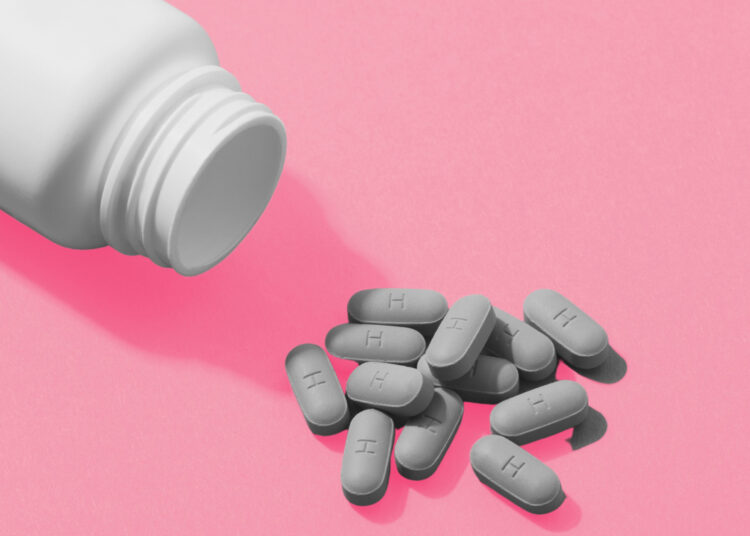20 years ago at the tail-end of the HIV/AIDs epidemic, the virus was still for most people a death sentence. Largely due to a lethargic response from governments, such as the Reagan administration in the USA. There was incredibly poor HIV awareness and limited education about the virus. The virus was able to run rampant through the LGBTQ community and claimed the lives of thousands of our brightest stars, most talented artists, and most astute minds. Today, however, this once deadly virus is now so manageable that with the correct medication. A new case of HIV can be so successfully suppressed that it becomes undetectable and untransferable. This means an HIV positive person no longer appears as such when tested for the virus and can’t transfer the virus to a sexual partner.
Why is HIV awareness important?
As a member of the gay community, HIV awareness has been a feature of my sexual health needs for a long time. The limited information most of us receive in schools relating to our sexual health education centres on HIV. Despite the severe lack of nuance in these settings, it is good to ensure awareness of the virus. It was this awareness that led me to research my options when I left a monogamous relationship recently. I knew that realistically I was going to want to have some casual sex and take precautions to avoid any potential health issues related to the virus. This is why I decided to start PrEP.
For feminists, it is important that we advocate for sexual health literacy. Generally, poor communication around sex is one of the most cutting ways that patriarchy impacts us and our bodies. By having clear and well-communicated information about sexual health we are able to reclaim our bodies and our sexuality. It is often considered very dangerous for anyone who is not a cis-het man to do this.
HIV advocacy is particularly important because the virus still massively impacts women of colour both in the West and in regions like Sub-Saharan Africa where the virus has claimed many lives. By increasing HIV awareness we are eliminating negative stigmas against the virus and giving marginalised communities a better understanding of their sexual health. Further, sexual health education still predominantly is heteronormative and phallocentric. This that, unfortunately, it falls to us as feminists to spread HIV awareness and educate others in a non-judgemental way.
What is PrEP?
PrEP is a medication that is free through the NHS which makes it incredibly unlikely to catch HIV from a partner who is positive. HIV is not something that should be stigmatised. People who have contracted the virus are not damaged and they are not dangerous. They are not irresponsible and they should not be shamed because of their status. HIV positive people come from all kinds of backgrounds and situations. As a community that was ravaged by the virus for the best part of 3 decades, we need to accept and uplift those of us who have the virus. With this in mind, I still wanted to be responsible and minimise my chances of contracting HIV because it is still a health complication, one that can be very effectively managed, but a complication still.
How Do I Start PrEP?
When you begin PrEP it is standard procedure that you attend a full sexual health screen at your local sexual health clinic. This can be an uncomfortable experience but it is important to remember that the staff in these clinics are very welcoming, non-judgemental, and are patient with the people they see. You will be asked a series of questions about your sexual history so be mindful that you may need to disclose sensitive information to staff. This information is confidential and you should answer truthfully. The staff aren’t there to judge you but to help direct you to the best options and services for you.
PrEP is available to anybody who needs it. Typically it is recommended to men who have sex with men, people in the sex industry, and other communities with higher historic rates of HIV transmission. This does not mean that it is exclusively available to these groups. If PrEP is a necessary part of your sexual health needs it will not be denied to you. It also is a medication that is not disclosed to your GP unless you give consent. The infrastructure around PrEP allows you to make your own choices and have autonomy over your sexual health decisions.

When You’ve Started PrEP
Generally speaking there is a very small chance you will experience major side effects from taking PrEP. In some cases, people who take it feel some abdominal pains but these normally subside fairly quickly. If they persist it is recommended you stop taking the medication and return to your sexual health clinic for a follow up appointment.
Typically most people (myself included) take one pill a day. The timing of this pill doesn’t really matter but it is sometimes a good idea to keep your PrEP on your bedside table or near your toothbrush so you remember to take it consistently. Some people who use PrEP will take it more sporadically. You can take 2 pills on days you anticipate having sex and 2 the following day. I didn’t want to plan my use of the medication this much so take one daily pill. This is mostly just for peace of mind in case I have unplanned sex.
How have I found starting PrEP?
Personally, starting PrEP was an excellent move. While I don’t necessarily need to take PrEP every day as I am not having casual sex too frequently. The peace of mind I have knowing that if I decide to have sex that I’m covered is great. It has helped me feel more comfortable exploring my sexuality after my breakup. There was some tummy pain but this only lasted about a week.

I’m feeling more empowered knowing that I have been able to make a responsible decision about my sexual health. I also have better HIV awareness in general. At the same time as having my PrEP consultation, I was able to get vaccinations against HPV and Hepatitis A, as well as a booster against Hepatitis B. Being able to access sexual health services so easily made a massive difference in my confidence. I felt free to explore my options and take the guesswork out of sexual health.
A few things to remember while taking PrEP
Taking PrEP is an excellent thing to do if you want to be careful about your sexual health. It is important to remember that PrEP only prevents the transmission of HIV, meaning that you still need to use condoms as an STI preventative measure. PrEP offers no protection against other commonly transmitted STIs such as syphilis, chlamydia, and gonorrhoea. It also can’t protect against HPV or Hepatitis. You can be vaccinated against these and I’d highly recommend doing so whilst having your PrEP consultation.
It’s also important to remember that PrEP is not the right choice for everybody. Some people may not take PrEP because it does not agree with their bodies. It may noy be necessary for them, or it isn’t something they personally wish to do. Responsible and effective sexual health awareness includes understanding that everybody is different. Making sexual health decisions must be made with full agency and respected by others. Taking PrEP does not indicate anything about somebody’s sex life. It isn’t our place to judge who somebody sleeps with, how many people they sleep with, or how frequently they have sex (as long as its all consensual, consent is sexy don’t forget that!).














